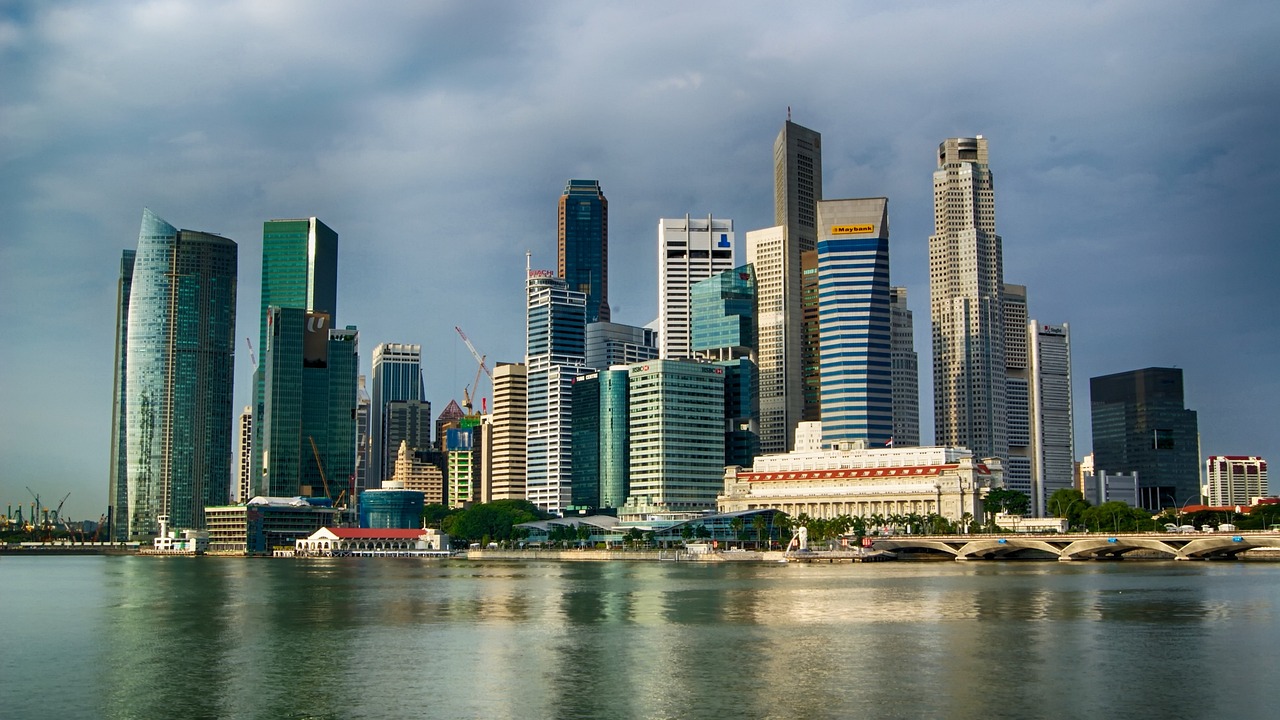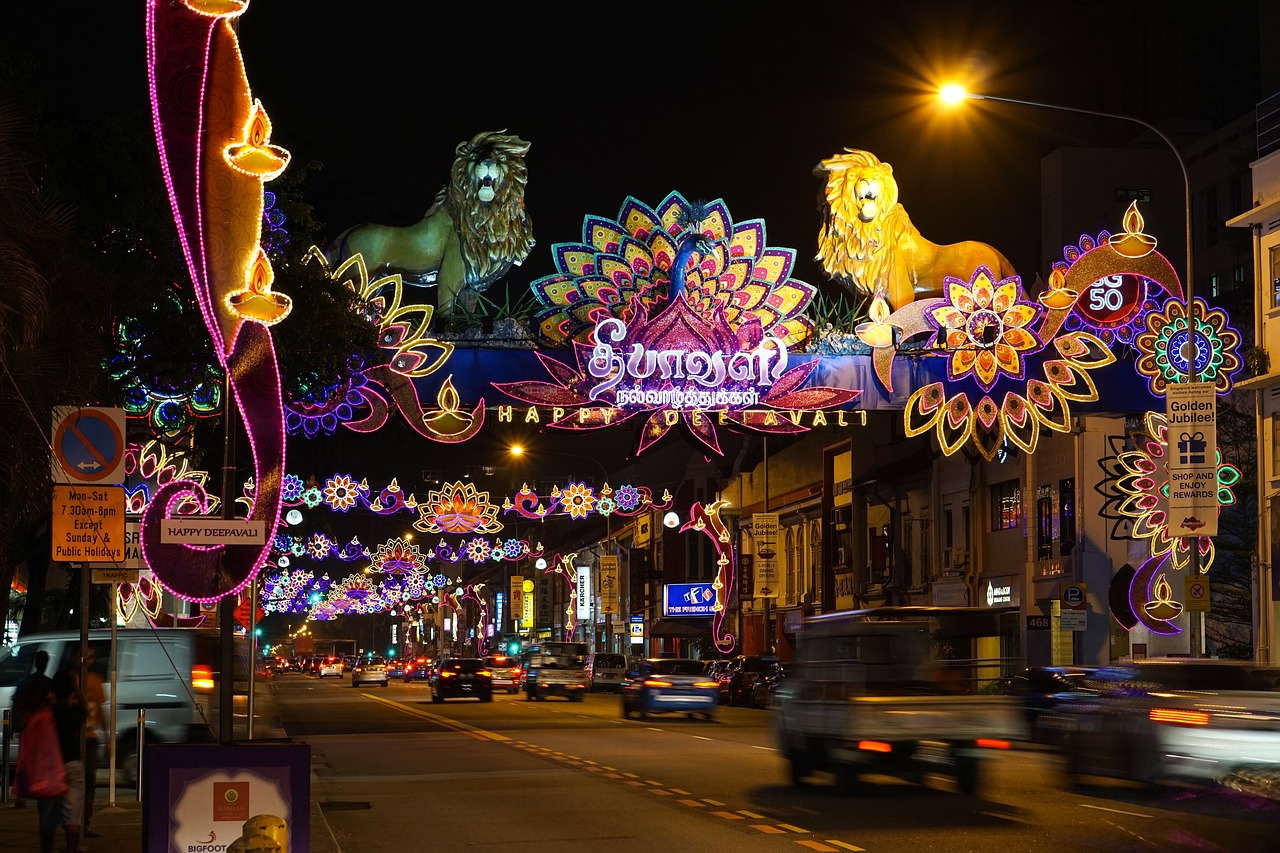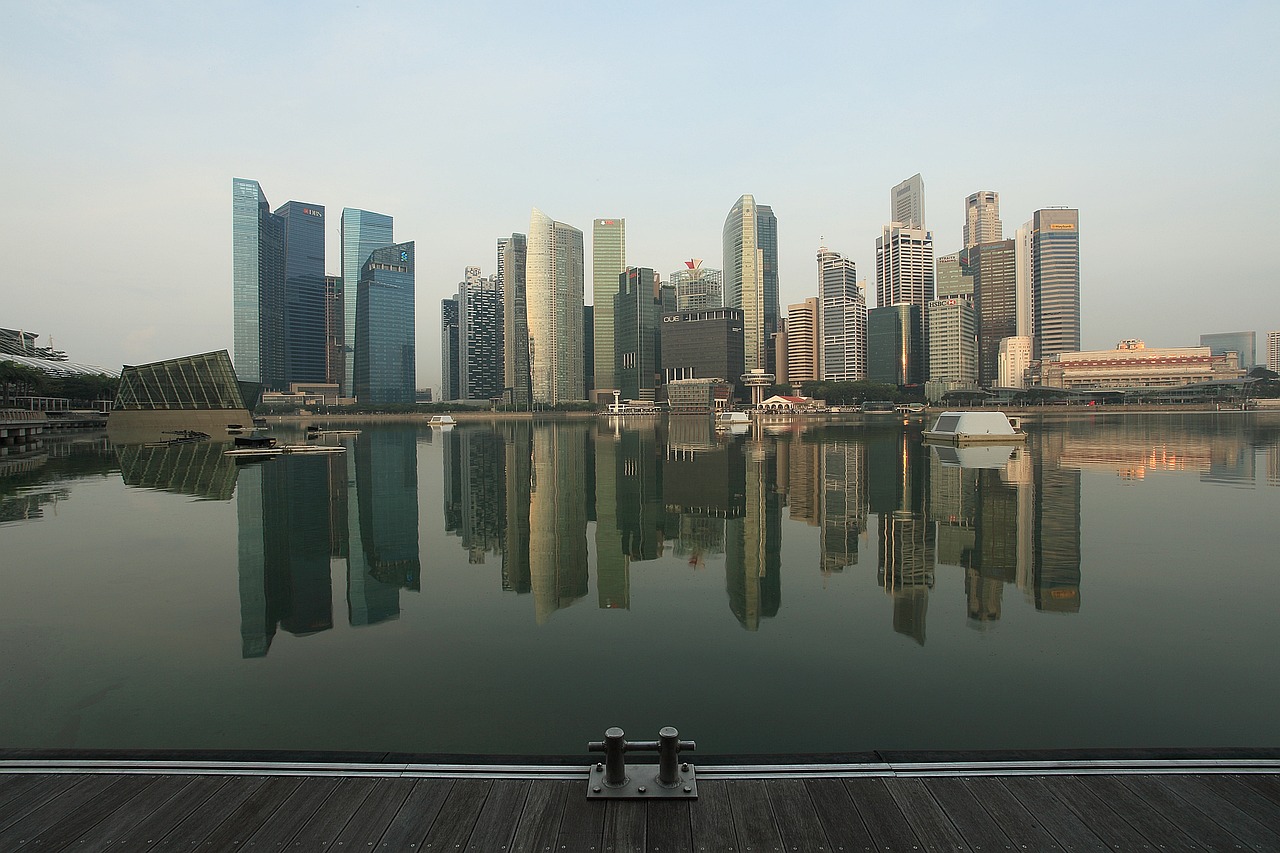Banking and Financial Services for Nomads in Singapore
Singapore is a vibrant city-state that attracts a large number of nomads from around the world. As a nomad in Singapore, it is important to have access to banking and financial services that cater to your unique needs. In this article, we will explore the various options available for nomads in Singapore and provide detailed information on how to make the most of these services.
Section 1: Opening a Bank Account
Opening a bank account in Singapore is a straightforward process for nomads. Most major local and international banks offer accounts specifically designed for non-residents. To open an account, you will typically need to provide your passport, proof of address, and employment or income details. Some banks may also require a minimum deposit. Once your account is open, you will have access to a range of banking services, including online banking, debit cards, and international money transfers.
- Online Banking: Singaporean banks offer robust online banking platforms, allowing you to manage your finances conveniently from anywhere in the world. You can check your account balance, transfer funds, pay bills, and set up automatic payments.
- Debit Cards: Upon opening a bank account, you will be issued a debit card that can be used for cash withdrawals at ATMs and for making purchases both locally and internationally. Some banks may also offer additional benefits such as cashback or rewards programs.
- International Money Transfers: Singapore is a global financial hub, and as a result, it offers efficient and cost-effective international money transfer services. You can easily send money to and receive money from other countries using various channels such as online transfers, wire transfers, or remittance services.
Section 2: Mobile Banking Apps
In addition to traditional banking services, many banks in Singapore offer mobile banking apps that provide a convenient way to manage your finances on the go. These apps typically allow you to perform various transactions, such as checking your account balance, transferring funds, paying bills, and even applying for loans or credit cards. Some popular mobile banking apps in Singapore include DBS Digibank, UOB Mighty, and OCBC Mobile Banking.
- DBS Digibank: DBS Digibank is a comprehensive mobile banking app that offers a wide range of services, including instant fund transfers, bill payments, investment tracking, and even access to lifestyle deals and discounts.
- UOB Mighty: UOB Mighty allows you to manage your UOB accounts, perform transactions, and even make contactless payments using your mobile phone. The app also provides personalized financial insights and recommendations.
- OCBC Mobile Banking: OCBC Mobile Banking offers a user-friendly interface and features such as instant fund transfers, bill payments, and card management. The app also provides access to OCBC’s investment and insurance services.
Section 3: Digital Payment Solutions
Singapore is known for its advanced digital payment infrastructure, making it easy for nomads to make cashless transactions. There are several digital payment solutions available in Singapore that can be used for various purposes, including everyday purchases, peer-to-peer transfers, and even splitting bills with friends.
Singapore Image 1:

- PayNow: PayNow is a peer-to-peer funds transfer service that allows you to send and receive money instantly using just a mobile number or Singaporean NRIC/FIN. It is widely accepted by banks and merchants in Singapore.
- GrabPay: GrabPay is a mobile wallet that can be used for a wide range of transactions, including rides, food deliveries, and in-store purchases. It also offers a rewards program and allows you to link your credit or debit cards for seamless payments.
- NETS: NETS is a widely accepted electronic payment system in Singapore. It enables cashless payments through various modes, including NETS cards, NETS QR, and contactless payments.
Section 4: Foreign Currency Exchange
As a nomad in Singapore, you may need to exchange currencies frequently. Fortunately, Singapore has a well-established foreign currency exchange market with numerous money changers and banks offering competitive rates. When exchanging currencies, it is advisable to compare rates and fees to get the best deal.
- Money Changers: There are many licensed money changers located in popular areas such as Chinatown, Little India, and the Central Business District. These money changers offer competitive rates and convenient services for exchanging a wide range of currencies.
- Banks: Most banks in Singapore also provide foreign currency exchange services. While the rates may not always be as competitive as those offered by money changers, using a bank can provide added convenience and security.
Section 5: Investment Opportunities
Singapore offers a range of investment opportunities for nomads looking to grow their wealth. From local stocks and bonds to real estate investment trusts (REITs) and digital investment platforms, there are options to suit different risk appetites and investment goals.
- Stocks and Bonds: The Singapore Exchange (SGX) offers a diverse range of stocks and bonds for investment. You can choose to invest in individual companies or opt for exchange-traded funds (ETFs) for a more diversified portfolio.
- Real Estate Investment Trusts (REITs): REITs are publicly traded companies that own and manage income-generating properties, such as shopping malls, office buildings, and hotels. Investing in REITs allows you to gain exposure to the real estate market without the need for large capital outlays.
- Digital Investment Platforms: There are several digital investment platforms available in Singapore that offer access to global markets and a range of investment products. These platforms typically provide user-friendly interfaces, low fees, and educational resources to help you make informed investment decisions.
Section 6: Insurance Services
Having adequate insurance coverage is essential for nomads to protect themselves and their belongings while in Singapore. There are various insurance options available, including health insurance, travel insurance, and personal property insurance.
Singapore Image 2:

- Health Insurance: Singapore has a world-class healthcare system, but medical expenses can be high. It is advisable to have health insurance that covers both outpatient and inpatient treatments. Many insurance providers offer international health insurance plans specifically designed for expatriates and nomads.
- Travel Insurance: Travel insurance is essential to protect against unexpected events such as trip cancellations, medical emergencies, or lost baggage. There are numerous travel insurance providers in Singapore that offer comprehensive coverage for nomads.
- Personal Property Insurance: If you have valuable belongings such as laptops, cameras, or other electronic devices, it is wise to have personal property insurance to cover theft, loss, or damage. Some insurance policies may also provide coverage for rental properties.
Section 7: Tax Considerations
Understanding the tax obligations as a nomad in Singapore is crucial to ensure compliance with local regulations. Singapore has a progressive tax system, and the tax rates vary depending on your residency status and income.
- Residency Status: As a nomad, your residency status in Singapore will determine your tax liability. If you stay in Singapore for less than 183 days in a calendar year, you will be considered a non-resident and will only be taxed on income derived from Singapore. If you stay in Singapore for 183 days or more, you will be considered a tax resident and will be subject to tax on your worldwide income.
- Tax Rates: Singapore has a progressive tax rate structure, with tax rates ranging from 0% to a maximum of 22%. The tax rates for non-residents are generally higher than those for tax residents. It is advisable to consult a tax professional or refer to the Inland Revenue Authority of Singapore (IRAS) website for the most up-to-date tax information.
- Tax Reliefs and Incentives: Singapore offers various tax reliefs and incentives to individuals, including deductions for employment-related expenses, tax exemptions for certain types of income, and schemes to encourage entrepreneurship and investment.
Section 8: Wealth Management Services
For nomads with significant assets or complex financial needs, Singapore offers a wide range of wealth management services. These services are provided by private banks, asset management firms, and financial advisors who can help you grow and preserve your wealth.
- Private Banks: Private banks in Singapore cater to high-net-worth individuals and offer personalized wealth management solutions. They provide services such as portfolio management, investment advisory, estate planning, and access to exclusive investment opportunities.
- Asset Management Firms: Asset management firms in Singapore manage investment portfolios on behalf of clients, offering expertise in various asset classes such as equities, bonds, and alternative investments. They provide access to professionally managed funds and investment strategies tailored to individual risk profiles.
- Financial Advisors: Independent financial advisors can help nomads navigate the complex world of finance and provide advice on investment strategies, retirement planning, and insurance coverage. They work closely with clients to understand their financial goals and recommend suitable products and services.
Section 9: Retirement Planning
Planning for retirement is essential for nomads to ensure financial security in the long term. Singapore offers various retirement planning options, including the Central Provident Fund (CPF) and supplementary retirement schemes.
Singapore Image 3:

- Central Provident Fund (CPF): The CPF is a comprehensive social security savings scheme in Singapore. Both employees and employers contribute to the CPF, which provides retirement, healthcare, and housing benefits. Nomads who are employed in Singapore may be eligible to contribute to the CPF.
- Supplementary Retirement Schemes: In addition to the CPF, there are supplementary retirement schemes available in Singapore that allow individuals to save and invest for retirement. These schemes offer tax benefits and flexibility in terms of investment options.
Section 10: Financial Education Resources
To make informed financial decisions, it is essential for nomads to stay updated on the latest trends and developments in the financial world. Singapore offers various resources for financial education and literacy.
- MoneySENSE: MoneySENSE is a national financial education program in Singapore that aims to enhance the financial literacy of individuals. It provides a wide range of resources, including workshops, online courses, and publications, covering topics such as budgeting, saving, investing, and retirement planning.
- Financial Institutions: Many banks and financial institutions in Singapore offer educational resources on their websites, including articles, guides, and calculators, to help individuals make informed financial decisions.
- Government Agencies: Government agencies such as the Monetary Authority of Singapore (MAS) and the Inland Revenue Authority of Singapore (IRAS) provide valuable information and resources on financial matters, including regulations, tax guidelines, and investor protection.
Section 11: Nomad-Friendly Banks
While most banks in Singapore cater to the needs of nomads, some banks offer specific features and benefits that make them more suitable for the nomadic lifestyle.
- DBS Bank: DBS Bank offers a range of services tailored for nomads, including multi-currency accounts, low foreign exchange fees, and digital banking solutions. They also have a strong network of ATMs and branches across Singapore.
- Standard Chartered Bank: Standard Chartered Bank provides a suite of digital banking services, including international money transfers and multi-currency accounts. They offer preferential rates for frequent travelers and access to airport lounges through their credit card partnerships.
- Citibank: Citibank offers a global network of ATMs and branches, making it convenient for nomads who travel frequently. They also provide multi-currency accounts and competitive foreign exchange rates.
Section 12: Conclusion
Singapore offers a comprehensive range of banking and financial services for nomads, ensuring easy access to funds, convenient money management, and investment opportunities. By understanding the various options available and leveraging digital solutions, nomads can make the most of their financial resources while enjoying the vibrant lifestyle that Singapore has to offer.
References:
– DBS Bank: www.dbs.com
– UOB: www.uob.com.sg
– OCBC Bank: www.ocbc.com
– PayNow: www.abs.org.sg/paynow
– GrabPay: www.grab.com/sg/pay
– NETS: www.nets.com.sg
– Inland Revenue Authority of Singapore (IRAS): www.iras.gov.sg
– Singapore Exchange (SGX): www.sgx.com
– Monetary Authority of Singapore (MAS): www.mas.gov.sg
– MoneySENSE: www.moneysense.gov.sg
– DBS Bank: www.dbs.com.sg
– Standard Chartered Bank: www.sc.com/sg
– Citibank: www.citibank.com.sg

